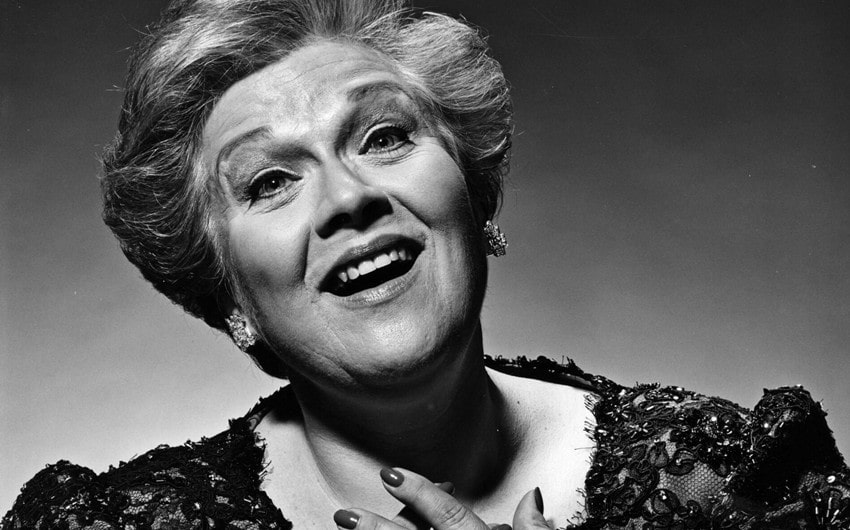What Is Marilyn Horne Net Worth and How She Built Her Musical Legacy
When you think of opera legends, Marilyn Horne’s name is impossible to ignore—and so is the curiosity around Marilyn Horne net worth. How does a mezzo-soprano build a financial legacy in a world often overlooked by mainstream fame? You’re about to discover how talent, timing, and tireless dedication translated into a remarkable career and lasting impact, both artistically and financially.
Who Is Marilyn Horne?
You may not have lived through her golden years on stage, but Marilyn Horne’s voice likely touched your world in one way or another. Born in 1934 in Bradford, Pennsylvania, she moved to Long Beach, California, with her family as a child and began vocal training early. By her teenage years, her voice already hinted at something extraordinary. But it wasn’t until she entered the world of opera that the full force of her talent became undeniable.
Her international breakthrough came in the 1960s when she performed Handel’s Rinaldo in Venice, sharing the stage with some of the biggest names in opera. Soon, she became known for her rich, agile voice, particularly suited for bel canto roles—those technically demanding parts in operas by Rossini, Bellini, and Donizetti. Unlike many stars who fade with time, Horne remained relevant across decades, performing at major opera houses around the globe.
She wasn’t just another soprano with a fleeting career. Marilyn Horne carved out a unique space for the mezzo voice, transforming how the opera world appreciated this vocal range. Whether you’re a music student, a casual listener, or just someone inspired by enduring artistry, her story is a reminder that true talent often transcends trends.
Breaking Down Marilyn Horne Net Worth in 2025
So how much is Marilyn Horne net worth in 2025? While exact figures can be hard to pin down—especially for classical artists who don’t rely on paparazzi or flashy headlines—estimates place her net worth between $9 million and $12 million. This might surprise you, especially considering that opera isn’t known for making instant millionaires.
But Horne’s wealth is the result of decades of consistent performance, royalties from recordings, academic contributions, and thoughtful financial stewardship. Unlike pop icons who earn most of their income from mass appeal, Horne built her fortune from a loyal and global classical audience.
Compared to peers in the classical world, she stands near the top. While not at the level of crossover stars like Andrea Bocelli or Renée Fleming—who benefit from mainstream exposure—Horne’s financial success is formidable in a genre where longevity and respect are often more attainable than riches.
Sources of Income Over Her Career
Opera Performances and Global Tours
You can trace the bulk of Marilyn Horne’s early income to her stage performances. During her prime, she was in high demand at top venues like the Metropolitan Opera in New York, La Scala in Milan, and Covent Garden in London. These weren’t just gigs—they were career-defining roles that paid well and came with international acclaim.
What made her performances especially profitable was not just the paycheck, but the prestige. With high-profile roles came repeat invitations, increasing her value season after season. Over time, she became a box office draw in the world of opera, which ensured steady work and significant earnings for decades.
Recordings, Broadcasts, and Royalties
When you think about enduring income, this is where things get interesting. Horne recorded prolifically, releasing albums that captured her vocal range and interpretive finesse. Many of these recordings—especially her collaborations with conductor James Levine and tenor Luciano Pavarotti—remain essential listening for classical music lovers.
Her Grammy wins and multiple nominations bolstered her reputation, but more importantly, they kept her music circulating. Royalties from CD sales, digital downloads, and streaming continue to contribute to her net worth today. You may not see her face on Spotify’s trending page, but her work earns quietly, month after month.
Television specials and PBS broadcasts of her concerts also added to her visibility and financial rewards. These appearances brought her into homes far beyond the concert hall and cemented her as a household name among classical audiences.
Teaching and Artistic Directorships
As her stage career slowed, Horne didn’t fade into retirement. Instead, she redirected her expertise into teaching. She held positions at prestigious institutions, including the University of Southern California’s Thornton School of Music and The Music Academy of the West in Santa Barbara. These roles were more than honorary—she mentored the next generation of singers and earned a steady income from it.
In addition, she served in leadership roles, including as the artistic director of the Marilyn Horne Foundation, which sponsored recitals and supported vocal education. Her speaking engagements, masterclasses, and guest residencies also came with compensation, adding to her overall financial profile.
Awards, Honors, and Sponsored Appearances
You might be surprised to learn how awards and public honors can influence someone’s earnings—especially in the arts. Marilyn Horne was awarded the National Medal of Arts and received Kennedy Center Honors, among others. While these accolades aren’t accompanied by massive cash prizes, they open doors.
These recognitions led to keynote appearances, commemorative concerts, and public ceremonies, often sponsored by cultural organizations or philanthropic donors. Each appearance came with fees or stipends, and over time, these added meaningfully to her wealth.
How Marilyn Horne Invested in Her Legacy
If there’s one thing that defines Marilyn Horne, it’s her dedication to the craft. In 1993, she founded the Marilyn Horne Foundation, an organization focused on preserving and promoting the art of vocal recital. This wasn’t just a vanity project—it was a full-circle investment in the future of classical singing.
The foundation organized recital tours for emerging singers, introduced classical music to underserved communities, and partnered with institutions to foster artistic excellence. While many artists retire quietly, Horne doubled down on outreach, spending her resources to make the art form she loved more accessible.
Her support for education didn’t stop there. Horne donated generously to schools, conservatories, and vocal programs across the country. Rather than choosing high-end luxury or flashy purchases, she channeled her financial success into the nurturing of future talent. Her net worth, in that sense, became more than a number—it became a reservoir for sustaining beauty and excellence in the world.
Featured image source: deezer.com






